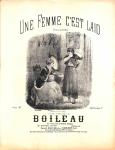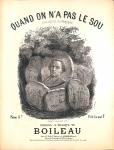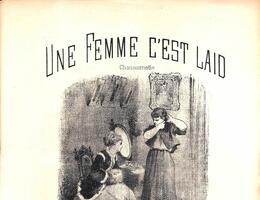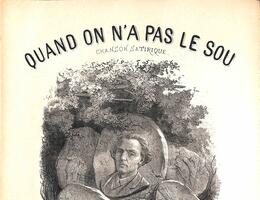BOILEAU
-
Composer, Lyricist
Becoming the voice of the poorest sectors of society (Quand on n’a pas le sou, L’Ouvrier heureux), this chansonnier anticipated the insurrectionary wit of a songwriter like Georges Brassens in many ways. Apart from his published works, however, very little is known about the man who called himself “Boileau”: he does not appear in any of the biographical dictionaries and is mentioned only sparingly in the publications of that time. His first songs were published around 1859 under the name “Gaucher dit Boileau” (until 1862); after this date, his songs, signed simply “Boileau”, appeared until the early 1880s. The places of publication of these pieces reveal that the songwriter was situated in the south of France: Carcassonne, Montpellier, Valence, Avignon, Toulouse and Lyon. The man who appears as an “elderly shepherd from the Isère” in the frontispiece of his early songs, also seems to have been in charge of the Marseille office of an opera and theatre agency in the mid- 1870s. He may well have experienced some legal problems, in 1873, for selling songs without authorisation. A quick look at the titles of the songs he wrote, however, makes it possible to deduce his political leanings. Alongside ballads that were somewhat misogynistic (La femme c’est mal fait, Une femme c’est laid, Ce que valent les femmes) or racist (Le Sauvage, Le Nègre Siroco), he wrote countless anticlerical or republican songs: Si Jésus-Christ le savait, Ce que Dieu n’a pas dit, Si j’étais le choléra, Le Son des écoles laïques, etc. It is easy to understand, therefore, why he would have used this pseudonym during a period of production that began under the French Second Empire and came to an end with the victory of the Republicans.
Permalink
publication date : 28/09/23




